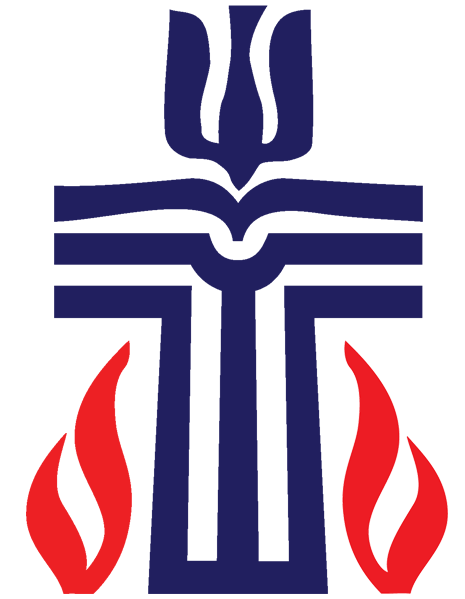Every year on the fourth Sunday of the Easter Season the church turns to these passages, and celebrates what many call “Good Shepherd Sunday.” And we’ve just read, together, some of scripture’s most familiar and beloved words, “The Lord is my shepherd, I shall not want.”
Scripture can be found here...
This might be the most comforting image we have of Jesus. For some of us these words conjure a beloved picture we remember seeing hanging on a Sunday School classroom wall. If by chance in childhood we tried to memorize passages of scripture, this might well be the passage that has stayed with us. Gentle Jesus, loving Shepherd, carrying the lost and tired lamb home on his shoulders. It is an image both lovely and loving.
But the gospel passage pushes our musings on Good Shepherd Sunday in a slightly different direction. Instead of hearing Jesus say, “I am the good shepherd,” we hear the slightly unfamiliar, and maybe uncomfortable words: “I am the gate.”
In the gospel of John, Jesus makes claims about his identity that we don’t find in the other gospels. I am the bread of life, he says. I am the light of the world. I am the true vine. And here, “I am the gate for the sheep… I am the gate.”
The word “gate” doesn't have quite the same warm and fuzzy feeling as the word“shepherd.” In fact, I think “gate” has a largely negative connotation. I think of gated communities and security fences, and being on one side or the other of the TSA screening at an airport. Gates makes us wonder who is in, and who is out, and who made the decision, and on what basis.
And I also think of the gates we have constructed in the church over the centuries. There was a time when those who presented themselves at the Lord’s Supper had to undergo a screening process, by which the elders of the church visited them to determine whether they were in a state of sin, and therefore unworthy of participating. We called that, “Fencing the Table,” and it is still practiced in many churches.
And if we continue to read the passage, we find that Jesus is actually speaking in the context of danger… he is talking of thieves and bandits, and those who would steal and kill, and we start to wonder… what is he talking about?
We started reading this morning at chapter 10, verse 1. The gospel writers gave us no chapters or verses; those were added later for ease of looking things up. As it turns out, this passage is actually a continuation of a story we read weeks ago… we are actually still smack in the middle of the story of Jesus healing the man born blind.
You may remember that Jesus healed a man on the Sabbath, and that it didn’t go over very well with the religious authorities. They looked askance at anyone who did anything on the Sabbath that might challenge their authority. That’s what Jesus is talking about, and he’s still steaming. He views anyone who might be against something as basic as healing as a thief, and a bandit, trying to steal someone’s health to shore up their own power and authority.
And then we remember that, in the usual course of things, Jesus tends to be on the side of un-fencing things. This is the Jesus who spoke with a Samaritan woman, someone of a reviled ethnic group, and sent her off as an evangelist. This is the Jesus who distributed food to 5,000-plus people without any attempt to pre-determine whether or not they were “worthy.” This is the Jesus who, at the moment he called a dead man out of the tomb, turned to those nearby and said, “unbind him, and let him go.”
So, whatever Jesus means by “I am the gate,” it is highly unlikely that he is talking about something that is meant to determine who is in, and who is out, because he has pretty much been about doing away with those kinds of distinctions.
Here’s what he means. Ancient sheepfolds were actually constructed without a gate of any kind. They were low walls, sometimes made of stone, formed in a circle or rectangle, with an opening just big enough for a person to sit or lie on the ground. This isn’t a metaphor. In the ancient world, the shepherd actually was the gate.
In other words, it is the shepherd’s own body that comes between the sheep and danger. It is the shepherd’s own life that is laid down for the safety of his flock. Much as we like the gentle, pastoral image of the shepherd, it was actually a job that involved strength and skill and readiness to wild the staff to ward off or even kill predators.
“Whoever enters by me will be saved, and will come in and go out and find pasture,” Jesus says. In Christ, being saved involves having the freedom to come and to go. The shepherd-who-is-the-gate isn’t about encroaching on the flock; he allows for a space of safety and protection, as well as the enjoyment and nourishment of the pasture. “I came that they may have life, and have it abundantly,” Jesus says.
We have just welcomed two precious children of God into the “fold” that is Christ’s Church. If Christ is the gate, his arms swing wide in welcome, not only for Jaxson and Gianna, but also for the last, the least, and the lost. If Christ is the gate, he is the one who opens himself, not to condemn the world, but to save it. If Christ is the gate, he is a gate of flesh and blood, of tender care and sacrificial devotion, who lives so that we might have life, and have it abundantly.
Thanks be to God. Amen.

